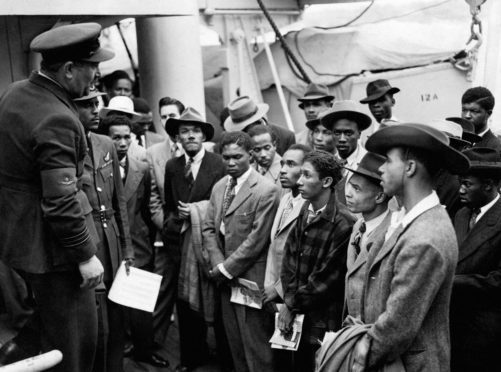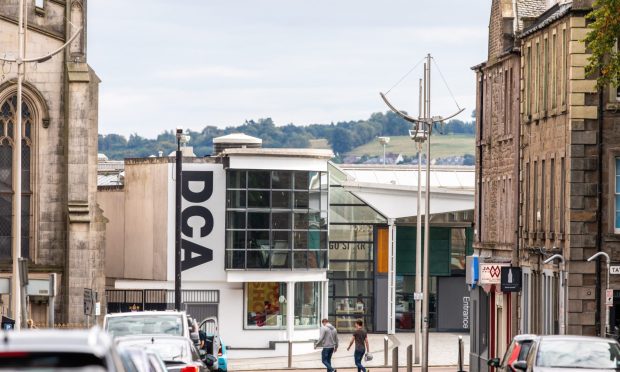History turns on where ships dock and where the passengers disembark. The UK Government is making a hash of the Windrush generation issue but had the ship landed in Dundee, would Scots be making the same mistakes?
The MV Empire Windrush was a passenger vessel. It took people from islands in the West Atlantic and dropped them off on an island in the north east Atlantic.
Where they came from was called the West Indies because Europeans who sailed there thought there was some connection or association to the East Indies. They landed in Britain, at Tilbury Docks, Essex, in 1948.
Coming from a poor country to the world’s second richest must have seemed like good luck. Coming from a warm country to the wet and bitter racism of Britain might have corrected any sense of good fortune. The first forced immigration is thought to have occurred in Mesopotamia 4,000 years ago, when crops failed and people moved to more fertile ground.
It’s been happening ever since – history deals a raw hand to some group, somewhere, in every generation. They must leave home and start again – a terrifying process. Britain in 1948 was in flux – losing an empire and searching for a role while recovering from an exhausting war. Despite having built its global success on peoples from all over, Britons were not that happy to see them coming to their home.
The Windrush generation, like the emigrants fleeing the division of India or East Pakistan’s fight to become Bangladesh or the Asians expelled from Uganda, all arrived in a place that would rather not have them.
Crucially, they landed in the south of England. This has gone on to shape UK politics in profound ways. Having landed in or near London, they stayed in that region, slowly moving north, but never in great numbers to Scotland.
Twenty years after the Windrush docked, Enoch Powell gave his “rivers of blood” speech, warning of social chaos if immigration continued.
In broad terms, the places which don’t want immigrants are the places which have them. Thus the cities of England, and the south east in particular, will vote for causes and parties which want to restrict or stop immigrants – that’s why Theresa May, as Home Secretary, won favour for creating a “hostile environment” for immigrants. It may also explain why some people voted for Brexit.
Scotland, which has very few immigrants compared to southern England, would like more, or that is the politically acceptable line. The last racist remark in Scottish politics (exempting the questionable rhetoric on both sides in the independence referendum) was when Sir Nicholas Fairburn insulted the singer Susanne Bonnar, in 1992.
By then, Scotland had persuaded itself it was different to England, and because England had race riots and Scotland didn’t, that must mean we weren’t racist. The truth was, we simply didn’t have large enough non-white people to form a riot.
We had already fallen into the view that what mattered was our difference to England, not our shared history with the England of empire and the occasional atrocity. Yet surveys show we are just as racist as anyone else; we simply haven’t been given to the chance to display this characteristic.
As for empire, we have outsourced responsibility for this to the English. We turn up at the Commonwealth Games imagining we are different to the English, not asociated with the mistakes of the past.
We let Theresa May struggle to do the right thing on Windrush, as if this was nothing to do with us.
Had the Windrush docked in Dundee, it’s quite possible we would now have a large Afro-Caribbean population. There might be an annual festival, like that in Notting Hill in London, with gay costumes and steel drums. And we might be more conscious of our empire past, and quite possibly more vocally racist.
Around 3% of Scots are non-white, while nearly 15% of people in England identify as non-white in the census. Yet we share equally the history which brought people from all over the world to our shores, as we share the responsibility for any legacy of that conquest and exploitation.
It appears the UK Government has removed any threat of deportation for the Windrush generation, and is desperately rowing back on the harsh policy of doubting people’s citizenship. It is only a pity this has taken so long and been done so ineptly.
Nobody asked to be invaded by Scots and English, nor to be involved in the sugar and slave trade or be recruited to fight Britain’s wars. And they should not be asked to prove their loyalty to a country they have lived in for decades.










